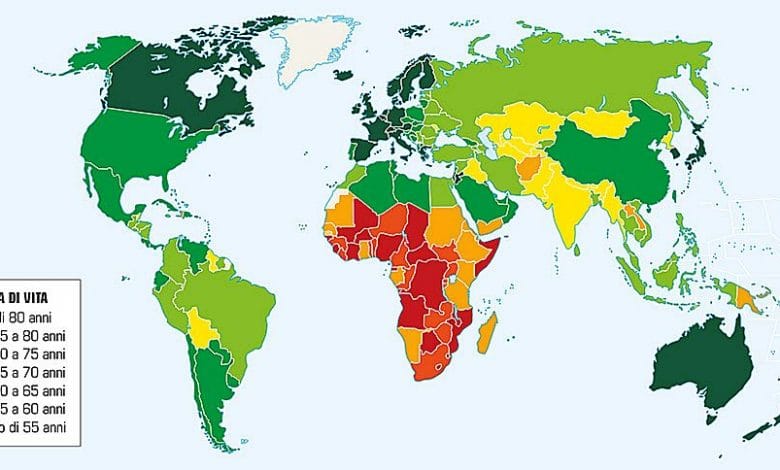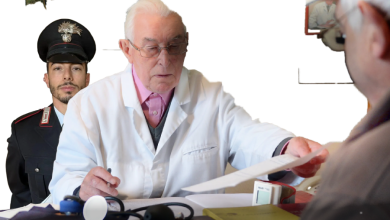
ROME, 10 APR – Italians live less than once: in 2015 life expectancy decreases compared to the previous year and if, in general, people die earlier, another alarming figure is that more people die in the southern regions. So much so that being born in Southern Italy, for example in Campania, means living on average 3-4 years less than those born in Trento. This is the worrying snapshot that emerges from the 2016 Osservasalute Report, which also signals a deterioration in lifestyles and a boom in chronically ill patients.
 In 2015, life expectancy at birth was 0.2 years lower in men and 0.4 years in women compared to 2014, settling, respectively, at 80.1 years and 84.6 years, highlights the Report of the work of the 180 researchers of the National Observatory on Health in the Italian Regions which is based at the Catholic University of Rome. A national average that differs in the various regions: In 2001, underlined the president of the Higher Institute of Health, as well as of the Observatory, Walter Ricciardi, "life expectancy was higher in the South, while today the South has retreated a lot, losing the advances gained from the post-war period.
In 2015, life expectancy at birth was 0.2 years lower in men and 0.4 years in women compared to 2014, settling, respectively, at 80.1 years and 84.6 years, highlights the Report of the work of the 180 researchers of the National Observatory on Health in the Italian Regions which is based at the Catholic University of Rome. A national average that differs in the various regions: In 2001, underlined the president of the Higher Institute of Health, as well as of the Observatory, Walter Ricciardi, "life expectancy was higher in the South, while today the South has retreated a lot, losing the advances gained from the post-war period.
Today being born in a hospital in Tunisia is in many respects better than being born in certain regions of the South, and this is not acceptable". And "unacceptable", said Health Minister Beatrice Lorenzin, is that there are "two Italys for the quality of health care: one at the top in the world and the other in crisis, but bringing Italy back to crisis levels higher is feasible as long as we work on prevention and planning”. However, he warned, there is "a call to responsibility for the central-southern regions, to implement actions in this direction". The Health Pact, he added, "however, has set important stakes and is reinvesting in the NHS".
At the basis of the higher mortality in the South, explained Ricciardi, there are various factors: "Poor prevention, starting from the lower response to cancer screenings, later diagnoses, a lower availability of innovative drugs and a lower efficacy and efficiency of the sanitary". But it is also the lifestyles that weigh, which precisely in the South register the highest rates of d i obesity and lack of physical activity. A two-speed Italy which also bears a further burden: the enormous weight, in economic and assistance terms, represented by the chronically ill, who now number over 23 million, equal to 4 out of 10 citizens. today more than ever on prevention: "From diabetes to obesity, from infections to women's and children's health - said Lorenzin - large prevention campaigns are fundamental".
i obesity and lack of physical activity. A two-speed Italy which also bears a further burden: the enormous weight, in economic and assistance terms, represented by the chronically ill, who now number over 23 million, equal to 4 out of 10 citizens. today more than ever on prevention: "From diabetes to obesity, from infections to women's and children's health - said Lorenzin - large prevention campaigns are fundamental".
Faced with this situation, he warned, "health expenditure cannot, however, remain at 6.8% of GDP, but must increase to European levels". According to Ricciardi, prevention is the only possible answer: “The NHS is not equally structured throughout the country to adequately assist the growing mass of chronically ill patients. This situation, if the trend is not reversed thanks to preventive actions - is the warning of the ISS president - puts the very stability of the system at risk ". (HANDLE).
(by Manuela Correra) (ANSA) - ROME, 10 APRIL - Aosta Valley
Related news: Osservasalute Report 2016
The right to health is no longer guaranteed






